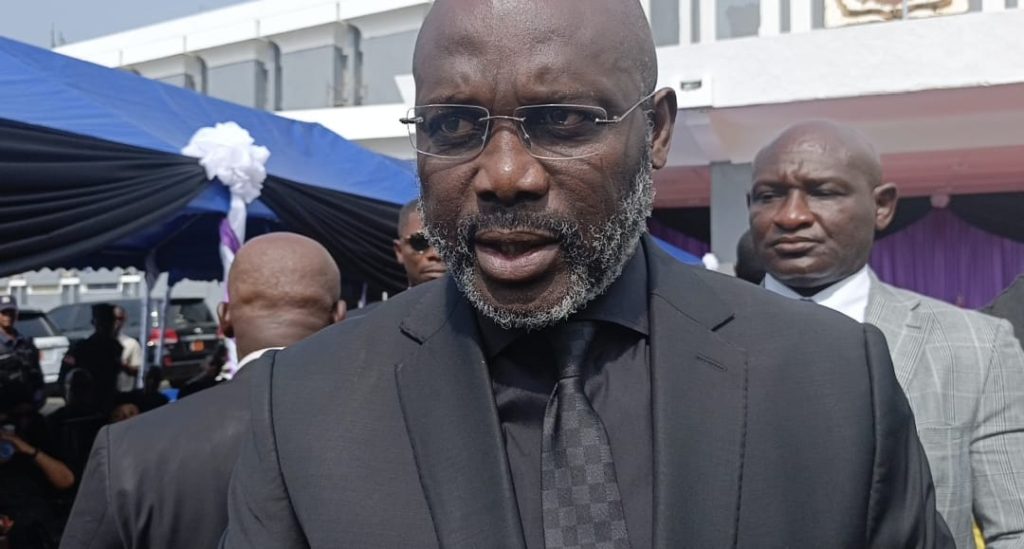The impending funeral of Senator Prince Y. Johnson in Nimba County, Liberia, has become a focal point of political tension, revolving around the attendance of former President George Weah. Johnson, revered as a kingmaker and hero by his kinsmen, passed away on November 28, 2024, prompting a period of mourning and reflection on his legacy. Weah’s declared intention to participate in the funeral ceremonies has sparked controversy, stemming from a previous incident where he was perceived to have snubbed Vice President Jeremiah Koung, also a Nimba native, during a condolence visit to Johnson’s family.
The controversy centers on Weah’s refusal to shake hands with Vice President Koung and Representative Samuel Kogar during a visit to Johnson’s residence in Paynesville shortly after the senator’s death. This gesture was interpreted by some Nimbaians as a deliberate affront to their community and a sign of disrespect towards the deceased senator. A group calling themselves the Rescue Intellectual Brigade for Vice President Koung and the late Sen. Johnson publicly condemned Weah’s action, deeming it a provocation and threatening unspecified traditional actions should the former president attend the funeral. They argued that Weah’s presence would be unwelcome, asserting that his visit to the bereaved family was not genuine sympathy but a calculated act of disrespect.
Despite the mounting pressure and threats, Weah has remained steadfast in his resolve to attend the funeral, emphasizing his connection to Nimba County as a native son and former senator. He underscored his past working relationship with Johnson, highlighting their collaboration during his tenure as a senator and their shared political affiliations. Weah maintains that his attendance is a matter of honoring a colleague and a prominent figure who contributed to Liberia’s political landscape. He questioned the authority of anyone to prevent him from paying his respects, emphasizing his rights as a former president, former senator, and fellow Nimbaian.
Weah has attempted to clarify the handshake incident, explaining it as a misinterpretation of his intentions. He claimed that his gesture of holding his hands to his chest was an alternative form of salutation and acknowledgment, not a deliberate snub. He insisted that he holds no ill will towards Vice President Koung, referring to him as a “little brother.” However, these explanations have failed to appease the aggrieved Nimbaians who view the incident as a symbolic slight against their community.
The situation is further complicated by the political undertones surrounding the funeral. Johnson was known for his significant influence in Nimba County, a region that often plays a pivotal role in Liberian elections. His endorsement and support were highly sought after by political figures, including Weah. The controversy surrounding Weah’s attendance can be interpreted within the context of political maneuvering and the desire to maintain positive relations with the influential Nimba electorate.
As the funeral date approaches, the uncertainty surrounding Weah’s reception in Nimba remains. While he insists on attending, the threat of resistance from the Rescue Intellectual Brigade and other disgruntled Nimbaians looms large. The funeral of Senator Prince Y. Johnson, intended to be a solemn occasion of remembrance and farewell, has become a stage for political posturing and a test of Weah’s standing within the crucial Nimba community. The events of the weekend will reveal whether reconciliation is possible or if the rift between the former president and segments of the Nimba population will deepen. The implications of this tension extend beyond the immediate context of the funeral, potentially affecting the political dynamics of Nimba County and the broader Liberian political landscape.














